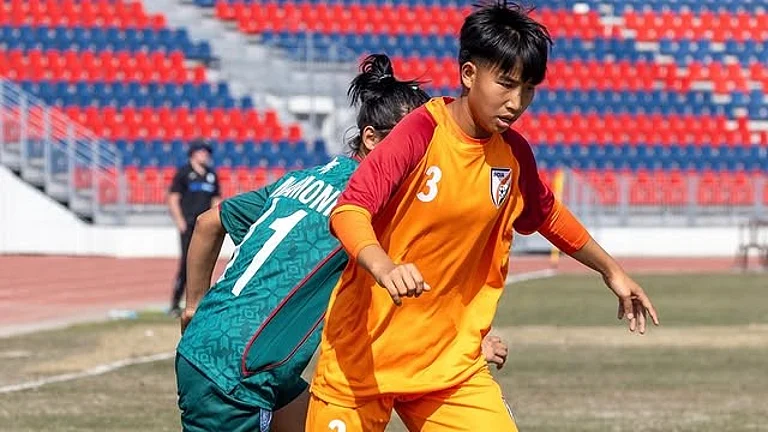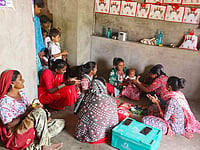Raising alarm over what it called a “rapidly escalating public health emergency”, a pan-India coalition of concerned mothers has urged the Government to immediately ban nicotine pouches and gums, flagging them as an insidious new vector of addiction targeting India’s adolescents.
Operating under the banner Mothers Against Vaping, the group has submitted a detailed representation to both the Union Ministry of Health and Family Welfare and the Central Drugs Standard Control Organisation (CDSCO). The memorandum warns that these discreet, flavoured nicotine products — often masquerading as wellness or cessation aids — represent a dangerous new gateway to lifelong dependency, particularly among school-going youth.
Drawing the Government's attention to the rise of e-cigarettes in India prior to their ban in 2019, the group cautioned that multinational tobacco companies are once again seeking to circumvent regulatory oversight by rebranding addictive substances in palatable, youth-friendly forms.
The group alleged that tobacco conglomerates are exploiting regulatory grey zones, sometimes through the acquisition of Indian pharmaceutical and nutraceutical firms, in a bid to secure drug licences that allow nicotine products to bypass tobacco control laws. One such acquisition has been specifically highlighted as an example of covert market entry, raising serious questions about conflicts of interest and regulatory capture.
Moreover, the representation underscored a global pattern of industry interference. The group cited their white paper titled 'Please Stop This', which documents lobbying efforts in multiple jurisdictions, including Japan, to promote nicotine pouches under the guise of harm reduction — a strategy the group deems “deeply misleading and dangerous.”
Quoting World Health Organization (WHO) guidance, the representation underscored that nicotine pouches—despite being smokeless and often marketed as tobacco-free—still pose significant health risks. WHO has recommended bans on such products, and over two dozen countries, including Australia, Belgium, Germany, Singapore and Japan, have already prohibited their sale. India, however, has yet to formulate a clear regulatory stance.
Health professionals associated with Mothers Against Vaping too raised red flags about how these products are aggressively marketed to teenagers, often disguised in brightly coloured packaging and flavoured with mint, bubblegum, and fruit.
“These are not cessation tools; these are candy-coated traps,” said Dr. Bhavna Barmi, a noted clinical psychologist. “The visual and sensory cues are deliberately designed to attract young minds and normalise the use of nicotine.”
Dr. Rajesh Gupta, Director of Pulmonology at Fortis Hospital, concurred saying that these products are often marketed as 'smokeless' or 'tobacco-free', but that doesn’t make them harmless.
"It should be highlighted that nicotine itself is a powerful chemical that can cause real, lasting damage, especially in developing bodies. There are many studies that have shown that nicotine alters brain development, and in teens it can cause elevated heart rates, high blood pressure, frequent headaches, nausea, and even early signs of cardiovascular strain. Nicotine can also impair immune function and disrupt sleep cycles, both of which are essential for healthy adolescent growth and development. Teens are being misled into thinking these pouches are safe or 'clean' alternatives when in reality they are exposing themselves to a highly addictive substance that harms their bodies in multiple ways.”
Further compounding the issue is the stealth factor — the pouches are discreet, odourless, and do not require spitting, making them easy to conceal and use inside classrooms. Each pouch can contain anywhere from 1.5 mg to an alarming 50 mg of nicotine — posing a regulatory and enforcement nightmare for authorities.
Adding to the complexity is the unregulated sale of nicotine gums and NRT (nicotine replacement therapy) products, said the group members. "Under Schedule K of the Drugs Rules, 1945, such products are exempt from prescription requirements if they contain up to 2 mg of nicotine." While intended for cessation, Mothers Against Vaping warned that these are increasingly being misused by adolescents for recreational purposes.
In this connection, the group cited a recent JAMA Network Open study that found nicotine pouch usage among American high school students surged between 2023 and 2024, even as vaping plateaued — a worrying global trend India may soon mirror.
The group has issued an urgent three-fold demand including immediate investigation into pharmaceutical firms applying for nicotine product licences — particularly those with known or suspected links to tobacco companies. The group has also called for a blanket ban on nicotine pouches and gums, including all flavoured variants and those marketed as “tobacco-free” and a nationwide awareness campaign to educate students and parents about the health risks and addictive potential of novel nicotine delivery products.
As India’s demographic dividend walks into a minefield of engineered addiction, Mothers Against Vaping urged the government to act before the crisis spirals further. “We banned e-cigarettes only after the damage had begun. Let us not repeat that mistake,” the group warned in its closing note.



























